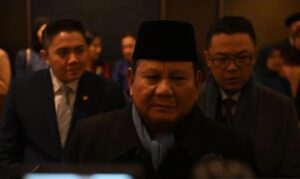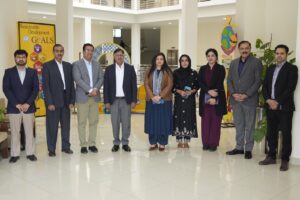USAID, Indonesia strategic collaborations in higher education

Jakarta, The Gulf Observer: USAID along with partner Arizona State University (ASU), hosted the 2023 STEM Conference (STEMCON) to explore topics on science, technology, engineering, and mathematics (STEM) education in Indonesia.
“The United States has a long history of supporting higher education partnerships in Indonesia. By bringing together government, Indonesian and American universities, and private businesses, this conference is laying the groundwork to enhance Indonesia’s STEM workforce to meet the country’s needs and tackle global challenges,” USAID Indonesia Mission Director Jeff Cohen noted in a statement received from the agency here on Tuesday.
STEMCON brought together policymakers, university leaders, and industry representatives to shape the next generation of Indonesia’s workforce to explore topics on science, technology, engineering, and mathematics (STEM) education in Indonesia.
The 2023 STEM Conference (STEMCON) held on November 29, 2023, was guided by the theme “Developing the STEM Workforce through U.S. and Indonesia Public-Private Partnerships.”
The conference, according to the statement, aspires to be a pivotal force driving cross-border collaboration and innovation. It serves as a dynamic platform for the exchange of ideas and the showcasing of best-in-class use-cases aimed at enhancing the accessibility, quality, and job readiness of STEM graduates.
“STEMCON represents a unique opportunity for the U.S. and Indonesia to forge lasting partnerships that will significantly impact the development of the STEM workforce. This conference, and the overall HEPI project, will help foster innovation and lasting advancements in Indonesia’s educational landscape,” Associate Vice Provost for SE Asia at Arizona State University and Principal Investigator for HEPI Jeffrey Goss said.
Distinguished sessions and speakers from both the U.S. and Indonesia will underscore the importance of an enterprise-wide workforce partnership development approach.
He affirmed that this approach strategically leverages government programs, private sector initiatives, and higher education institutions to establish scalable and innovative collective partnerships.
The primary goal is to bridge the existing talent gaps in STEM fields, both in the present and the future, he stated.
Quality Assurance Coordinator of the Ministry of Education, Culture, Research, and Technology Kevin Marbun emphasized the importance of collaboration and stated that universities play a pivotal role in nurturing the next generation of STEM professionals.
“I wish to express my profound gratitude to USAID, Arizona State University, and USAID HEPI project for their unwavering commitment to organizing this event and to fostering collaboration, knowledge exchange, and innovation in the STEM landscape,” Marbun was quoted in the statement.
USAID HEPI, adopting a community of practice model, is dedicated to fostering STEM partnerships and pathways. This involves linking U.S. higher education institutions with three key Indonesian university hubs, sixteen affiliate universities, and 10 industry partners.
Through this collaborative effort, the initiative aims to address STEM education challenges, enhance curricula, and improve teaching methods. The ultimate objective is to ensure that graduates are not only well-versed in their fields but are also industry-ready from day one, the statement said


